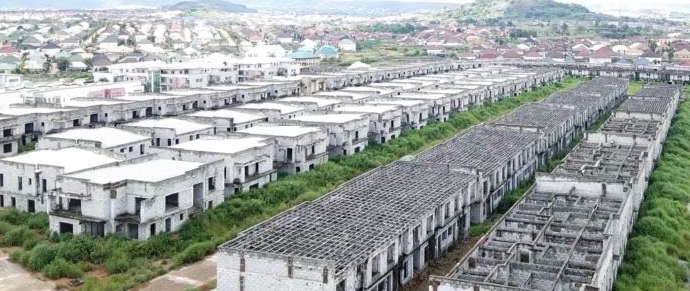
How EFCC makes historic asset seizure of 753 units of duplexes, others in Abuja
Emefiele Appeals Court Ruling on 753-unit Abuja Estate Forfeiture, Alleges EFCC Concealed Proceedings
Former Central Bank of Nigeria (CBN) Governor Godwin Emefiele has filed an appeal at the Abuja Court of Appeal, seeking to overturn a judgment that granted the federal government full control of a 753-unit housing estate in Lokogoma, Abuja.
The estate, initially linked to an unnamed ex-government official, was seized by the Economic and Financial Crimes Commission (EFCC) under a court order.
Emefiele, through his lawyer A.M. Kotoye, argued that he should have been included in the forfeiture proceedings. He requested an extension of time to challenge the interim and final forfeiture orders issued on December 2 and December 24, 2024, respectively, claiming he was unaware of the proceedings.
The ex-CBN chief alleged that the EFCC deliberately concealed the forfeiture notice by publishing it in an obscure section of a newspaper while he was facing trial in three separate criminal cases in Abuja and Lagos.
He accused the anti-graft agency of withholding information despite their frequent interactions over other charges.
However, Justice J.O. Onwuegbuzie dismissed Emefiele’s motion, stating that the EFCC complied with the Advance Fee Fraud and Other Fraud Related Offences Act, 2006, by placing a half-page notice in a national newspaper—a publication the court ruled could not be considered hidden.
In his April 30, 2025 appeal, Emefiele seeks five reliefs, including an order to set aside the lower court’s judgment.
He contends that the forfeiture orders were based on “conjectures and hearsay,” violating Section 44(1) of the 1999 Constitution and rendering them null and void.
Meanwhile, Emefiele’s co-counsel, A.O.M. Adebowale, has written to the Minister of Housing and Urban Development, urging a halt to any further actions on the property—including a planned public auction—pending the appeal’s resolution.
The letter emphasized that notices of appeal and injunction had already been served on the EFCC.
